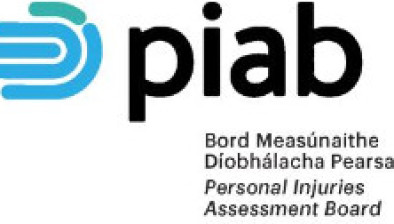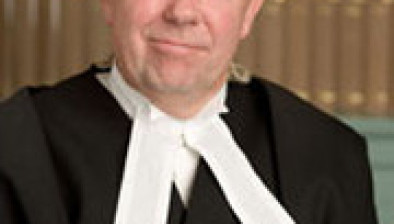High Court: Woman awarded €85,000 in general damages for 10mph crash
A woman whose car was rear-ended at traffic lights has been awarded €85,000 in general damages for pain and suffering caused by the accident.

About this case:
- Citation:[2019] IEHC 374
- Judgment:
- Court:High Court
- Judge:Mr Justice David Keane
Stating that the extent of the injuries caused by the low speed crash were worsened as a result of existing degenerative changes in the woman’s spine, underlying psychological vulnerability, and the damage caused to her teeth as a result of clenching her jaw, Mr Justice David Keane was satisfied that the woman was a sincere and truthful witness and the medical evidence was uncontroverted.
Background
In November 2013, Clare Loughnane was driving home from work when her car was struck from behind by the car being driven by Doreen Smith. Ms Loughnane was stationary at traffic lights at a junction, and Ms Smith gave evidence that her foot slipped off the brake pedal and collided with Ms Loughnane’s car.
Ms Loughnane said that she noticed Ms Smith becoming panicked and appeared to be alternately braking and accelerating, and that in anticipation she had tightly clenched her jaw involuntarily. Ms Loughnane said there was a severe impact, and that she was jolted forwards and backwards.
Ms Smith admitted negligence in allowing her vehicle to collide with Ms Loughnane’s, but she disputed the injuries suffered by Ms Loughnane. Ms Smith said that she clipped Ms Loughnane’s car, and that it was a slight impact.
The Court heard that the repairs to Ms Loughnane’s car cost approximately €500, and a consultant forensic engineer for Ms Loughnane acknowledged that the collision must have occurred at less than 10 miles per hour due to the fact that the plastic rear bumper of Ms Loughnane’s car absorbed the impact rather than dent or crumble.
Injuries
The day after the accident, Ms Loughnane began to experience severe pain in her head, neck, and thoracic spine. She attended her GP after work and was prescribed anti-inflammatories. In the following weeks she attended a physical therapist who declined to treat her and recommended that she attend a GP, Dr Ahmad Ajina, for medical attention instead, she also presented at A&E on two occasions.
Dr Ajina referred Ms Loughnane for an MRI scan of her brain, cervical spine, and lumbar spine. Her brain scan was normal, but the scan of her cervical spine “showed a significant established osteophyte encroachment of the exit foramina bilaterally, with exiting nerve root compression at each side, at the C5-C6 vertebrae. That of her lumbar spine disclosed degenerative changes to her L4-L5 vertebrae where there was a marked disc space narrowing and reactive endplate change, as well as early anterior and posterior osteophyte formation with annular bulging posteriorly at that level”.
Ms Loughnane complained of continued wrist and elbow pain, and experienced blackouts. She was diagnosed with chronic pain syndrome, and experienced worsening psychological symptoms including “reduced self-esteem, tearfulness, anxiety, panic and poor memory”. In 2018, a psychologist reported that Ms Loughnane was suffering from post-traumatic stress.
Ms Loughnane also suffered dental injuries as a result of the collision, having tightly clenched her jaw involuntarily in anticipation of the crash. One of her teeth cracked in the months after the accident, requiring the installation of a surgical implant. She required further dental work, including “further complex reconstruction of two more molar teeth, a gold post substructure and full crown coverage of another tooth in 2016, and treatment between August and September 2017 for occlusal bite stabilisation, involving a protective splint, a gold post substructure, and another crown”. Her prognosis was that she may lose all her root canal treated and conventionally crowned teeth, requiring replacement with dental implant supported crowns.
Discussion
Mr Justice Keane was satisfied that Ms Loughnane was a sincere and truthful witness. He said that, for Ms Smith, Ms Loughnane was among the worst possible candidates for an accident of this type because of the existing degenerative changes in her spine, her psychological vulnerability, and because she involuntarily clenched her jaw.
In this regard, Mr Justice Keane cited in Walsh v South Tipperary County Council [2011] IEHC 503 (Unreported): “[I]n the oft quoted case of the injured party with the so-called “egg-shell skull” it can, on occasion, turn out that, due to some weakness or predisposition, a particular injured party suffers much more severe consequences from a relatively innocuous incident than might at first be expected…”
Mr Justice Keane said that the medical evidence was left uncontroverted in its essential aspects, that as a result of the accident Ms Loughnane sustained a moderate degree of musculo-ligamentous injury, that she had underlying degenerative changes in her spine which became symptomatic because of the accident, and that the symptoms caused by the physical injury would have settled within two years – but that Ms Loughnane had a profound psychological reaction to the accident and consequently developed chronic pain syndrome for which the prognosis was uncertain.
Regarding the dental injuries, Mr Justice Keane said it was appropriate to accept costings of €15,268 for future dental treatment.
Stating that he would hear the parties on the appropriate figure for special damages, Mr Justice Keane awarded Ms Loughnane €85,000 in general damages, including €55,000 for pain and suffering to date and €30,000 for pain and suffering into the future.
- by Seosamh Gráinséir for Irish Legal News







